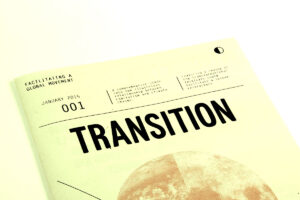Forging a community of journalism researchers and educators
 Center for Global Journalism and Communication opened on Tuesday March 16th, with members from close to a dozen countries represented. Presentations are available for attendees. A note of gratitude offered here to all those attending, hoping that we in the near future also succeed in launching meaningful projects together.
Center for Global Journalism and Communication opened on Tuesday March 16th, with members from close to a dozen countries represented. Presentations are available for attendees. A note of gratitude offered here to all those attending, hoping that we in the near future also succeed in launching meaningful projects together.
As we move forward, please find this story from The Quill a framework for reflections on what GjC might want to take up in future talks and projects -- written by Meera Selva, director of the journalism fellowship program at the University of Oxford’s Reuters Institute:
... The social media platforms were slow to brand the content they received from news organizations. People were more likely to say they read a story “On Facebook” rather than “from The Guardian, via Facebook.”
And this only got worse, as people shared stories privately, via messaging groups like Whatsapp.
The Reuters Institute Digital News Report 2019 showed that in countries such as Brazil and India, people were sharing on private messaging groups not just with friends and family, but with strangers. These communities not only shared information, but also misinformation, away from the eyes of journalists, media regulators and mainstream politicians.
Journalism continued to try to keep up with these changes.
Newspapers continued to pivot to video, laying off writers and hiring people to make short film clips that they hoped would encourage Facebook to put their brands in front of its subscribers. They wrote frivolous articles with headlines designed to grab attention on search engines. Journalists argued with each other on Twitter, judging someone’s value by the number of followers they had.
Nothing worked. Facebook realized its users didn’t want video from media houses. Clickbait, a last desperate attempt to breathe life into the dying business model that relied on persuading advertisers to pay for the chance to get in front of as many readers as possible, ended up undermining the reputation of journalists as authority figures.
Go to The Quill here, for their featured story section.
The story above reflects the same key themes that were highlighted in our opening workshop: The impacts of the digital transformation of journalism, the changes in the status of journalism as an authoritative voice in society, and the emergence of parallel channels of information leading to new levels of sub-cultural polarization.
Moving forward, these and other issues will hopefully develop into important conversations in our community, helping us to forge educational collaboration and also new project proposals where we might pursue comparative and collaborative agendas.
Featured photo courtesy of Tom Felle. Look him up here.